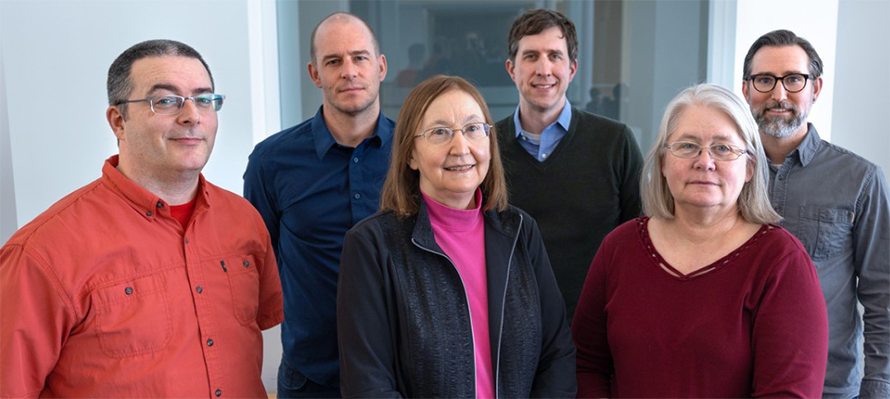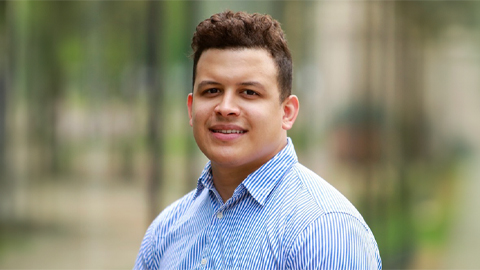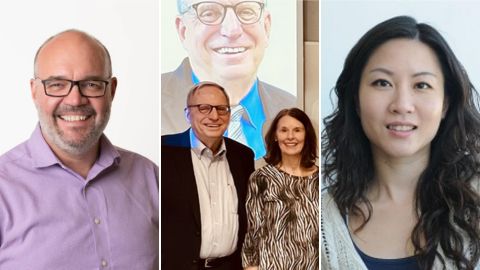$9.5M center grant for chronic fatigue syndrome research
A Cornell multidisciplinary research center that studies chronic fatigue syndrome has received a five-year, $9.5 million grant from the National Institutes of Health’s National Institute of Allergy and Infectious Disease — funding that will enable experts from disparate fields to work together on the mysterious and debilitating condition.
The Cornell Center for Enervating Neuroimmune Disease, established in 2017, ultimately seeks to understand the biological basis and develop a treatment for myalgic encephalomyelitis/chronic fatigue syndrome (ME/CFS), a disabling disorder for which there are currently no effective therapies.
ME/CFS affects an estimated 3 million people in the United States and some 65 million worldwide, causing some to be ill for decades and unable to work. The disease leads to overwhelming fatigue that rest does not alleviate. Symptoms may include brain fog, body pains, headaches, difficulty sleeping and prolonged increases in symptoms after mild physical exertion or exercise.

“What is desperately needed in ME/CFS are effective treatments that not only improve certain symptoms, but actually ameliorate the whole disease, so that people can get their lives back,” said Maureen Hanson, a professor in the College of Agriculture and Life Sciences, who is the center’s director and co-principal investigator of the grant, which started on April 1.
“When we started the center in 2017, our goal was to take a broad interdisciplinary approach, with the hope that we would find specific molecular changes in ME/CFS; now that we have found these changes, we can target our research on these changes and understand their impact, ultimately moving towards a cure,” said Andrew Grimson, associate professor in the Department of Molecular Biology and Genetics, the center’s associate director and co-principal investigator on the grant.
The center includes researchers from Cornell’s Ithaca campus (with collaborators from four colleges involved in the current cycle of research projects), the Hospital for Special Surgery in Manhattan, Florida Atlantic University, and Dr. Susan Levine, who will diagnose ME/CFS in patients from her private practice in Manhattan.
“The center allows biomedical engineers, bio-informaticists, immunologists, cell biologists — all these people with different expertise to come together and work on a single problem,” Hanson said.
The current grant will focus on three main research projects.
First, project lead Ben Cosgrove, working with Iwijn De Vlaminck, both associate professors in the Cornell Meinig School of Biomedical Engineering, will analyze gene expression in muscle biopsies, using a new spatial transcriptomics machine that measures RNA in cross sections of tissue samples to identify all the gene activity in the sample and map where the activity is occurring. Cosgrove and De Vlaminck will look for gene activity in muscle fibers, blood vessels and immune cells from the biopsies of ME/CFS patients and controls to see what differences are found in people with the syndrome. They will also be breaking down tissues from the biopsies into individual cells and looking at the RNA — and genes expressed — in individual cells.
The second project, led by Hanson, in collaboration with De Vlaminck, will analyze RNA released into blood plasma when cells die, before and after exercise, as people with ME/CFS respond abnormally — and adversely — to exercise. The tests seek to identify whether RNA released into the plasma after exercise is different between patients and controls. Also, the researchers will examine the proteins in extracellular vesicles — which play key roles in the body’s cellular signaling — before and 24 hours after exercise, to see if proteins present in extracellular vesicles are different in people with ME/CFS versus controls. They will also isolate extracellular vesicles from platelets, neuronal cells and blood vessel cells to check for differences between healthy people and ME/CFS patients, though this detailed inquiry will not involve exercise.
Third, Grimson, in collaboration with Dawei Li, a biomedical scientist at Florida Atlantic University, will lead a team to isolate and characterize gene expression in monocytes (a type of immune cell) and platelets in people with the disease compared to controls. In previous work at the center, Grimson discovered patients had abnormalities in both of these cell types, and this work will seek further information on such differences in the immune and circulatory systems, as both seem to be affected by the disease.
The center will be organized into an administrative core, headed by Hanson; and a genomics core, headed by Jen Grenier, director of the Genomics Innovation Hub in the Cornell Institute of Biotechnology. As part of the grant, the center will amass a huge amount of RNA, DNA, and clinical data from the three research projects, which will be analyzed together using multi-omics to tease out possible correlations between patient symptoms and different types of molecular data, including markers.
Researchers at the Hospital for Special Surgery, coordinated by Dr. David Fernandez, will handle participant interactions. They will collect health and demographic data, and perform strength and circulation tests. Dr. Yoshimi Endo will acquire muscle biopsies and Dr. Laura Donlin will process blood and tissue samples.
This article was first published by the Cornell Chronicle. Read the original.
Enjoy reading ASBMB Today?
Become a member to receive the print edition monthly and the digital edition weekly.
Learn moreGet the latest from ASBMB Today
Enter your email address, and we’ll send you a weekly email with recent articles, interviews and more.
Latest in People
People highlights or most popular articles

This MOSAIC scholar believes in the power of perseverance
Wagner Silva Dantas aims to develop new approaches to reducing fat mass while preserving muscle mass by studying a crucial regulator for maintaining redox balance.

ASBMB honors 2024 outstanding student chapter
Founded just three years ago, the University of South Alabama chapter shows leadership in educational activities, commitment to increasing public scientific awareness and more.

Honors for Shan, Landick and Bankston
Awards, promotions, milestones and more. Find out what's going on the lives of ASBMB members.

In memoriam: Ulrich auf dem Keller
A professor at the Technical University of Denmark, he was a leader in wound healing research and mass spectrometry-based proteomics technology.

MOSAIC scholar explores enzymes
Organic chemist Edwin Alfonzo's scientific journey took an unexpected turn when he discovered the world of enzymes.

Honors for Wright, Chiu and Flanegan
Awards, promotions milestones and more. Find out what's going on in the lives of ASBMB members.

